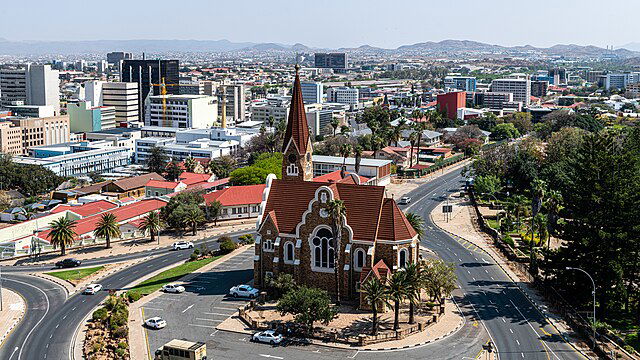How to Experience the Best of Namibian Culture
The Namib Desert, the oldest desert in the world, runs alongside the nation's Atlantic Ocean Coast. It is home to diverse ethnic groups from the San people, who are the oldest inhabitants to many other groups making the nation rich with culture and traditions. The colonization in later years had also left indelible footprints on the cultural landscape of the country. Discover some insights into exploring the unique Namibian Culture.
The capital city of Windhoek
Namibia is a fascinating land sparsely populated despite its vast and magnificent landscape. Apart from having the oldest desert in the world, it is home to some of the world’s tallest dunes and the second-largest canyon. Blessed with diverse wildlife including coalitions of cheetahs many visitors are attracted due to its rustic beauty and the allure of remoteness.
The exciting capital city of Namibia, Windhoek is the main gateway and a hub of different cultures. You will encounter different ethnic groups like San, Nama, Buster, European, Herero, Damara, Ovambo, Kavango and a few others during your stay. These natives are resilient and adaptable as you will discover in your explorations. Make the most of your visit by including a glimpse into the Namibian Culture as you plan the list of things to do in Windhoek.
Visit Namibia Craft Centre
An attractive collection of creative and insightful Namibian art, crafts and even traditional food captivate visitors' attention to this excellent well-managed craft centre. The products are authentic, of good quality, and displayed with indoor and outdoor stalls. Located at the Old Breweries Building on Tal Street, this craft centre can be easily reached from properties such as Avani Windhoek Hotel and Casino.This is a place where you can spend some time learning more about the different cultures as arts and crafts from artisans of varied ethnic groups can be found. Ostrich Egg-shell jewellery from the San people, bracelets and copper wire accessories from the Himba people, ethnic Afrikaan craft, animal carvings and a delightful collection of Matukondjo rag dolls. With all the wandering around you would do, don’t fail to try the local goodies at the Craft Café on site.

Christoph Strässler, Christ Church in Windhoek, Namibia, CC BY-SA 2.0
Do a cultural Tour
Many experienced operators offer unique cultural tour packages encompassing an understanding of the cultures and an appreciation of the subtle nuances of different cultures while respecting those during the interactions. These tours are conducted by experienced local guides. You can select the tour to suit your budget and interests as the rich cultural diversity in Namibia is best explored by witnessing different cultural traditions, practices and ways of life. These tours are convenient as you are picked up and dropped back to the hotel and travel is in air-conditioned comfort.
Taking approximately 3 hours, the tour starts with an overview of the capital city Windhoek, the modern city you witness today and its interesting past during the colonial era of the nation to the present The tour includes a visit to the Christ Church of Windhoek, a Lutheran Church and an iconic landmark of the city. This is followed by various interesting places such as Ink Palace, Parliament Gardens, and the Old Fort.
This initial sighting within the city where buildings and layouts are typically in colonial architecture and planning, is followed by a drive to Katutura Township a suburb where most of the population of Windhoek is settled. It is a bustling place letting you get a glimpse of the vibrant and eclectic African culture and lifestyle. Experience the Oshetu community and Penduka People, explore their vibrant markets and chat with the vendors. Try tasting Kapana, a local preparation and one of the popular dishes made with beef relished by many. Feel enriched by the whole experience.
Interact with local vendors
Although you can easily find a supermarket to buy things like fresh fruits, drinks and other necessities during your stay, try the local vendors who sell their products on the street. Their produce is fresh, and the price is cheaper. You will also find vendors selling local souvenirs and flip-flops on the street. These are great opportunities to interact with the native people and support their trade, thereby helping them make a living in a meaningful manner. It is a fine gesture of empathy demonstrating awareness of social culture while appreciating their efforts.
